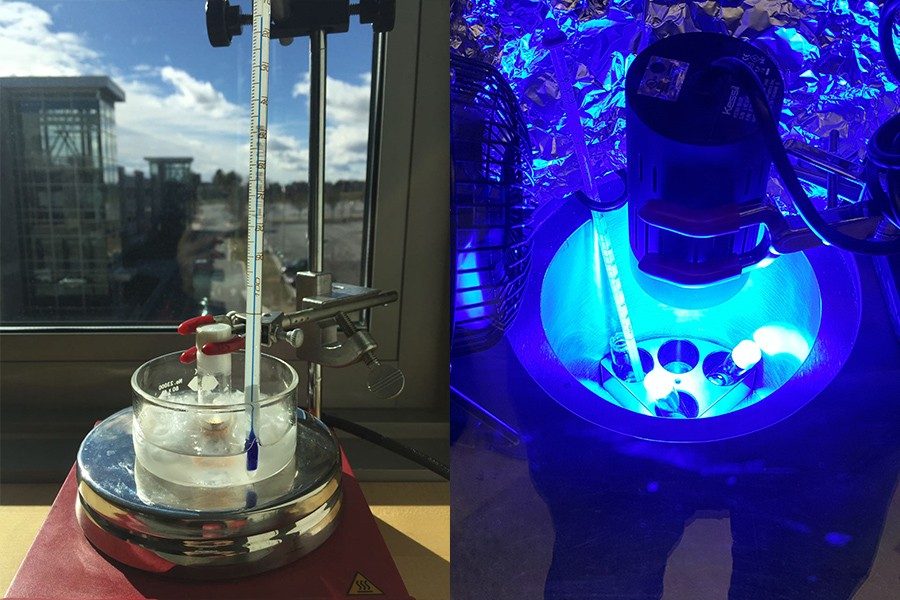Polyester is inescapable: used in everyday items like clothes, water bottles, food packaging, and even biomedical devices, the polymer is an increasingly common choice for manufacturing.
Despite its popularity, customizing the physicochemical properties of polyester has been somewhat limited. Two Virginia Tech researchers are changing that through research recently published in the Journal of the American Chemical Society.
Rong Tong, assistant professor in the Department of Chemical Engineering in the College of Engineering, and his postdoctoral scholar, Quanyou Feng, have discovered a novel chemistry that can produce polyesters with sets of different properties.
“What that essentially means is that we can prepare polyester materials with customized macroscopic properties, such as rigidity, elasticity, and biodegradability,” Tong said.
Usually, the stiffness, stretchability, and other physical properties of polymers can be customized for different applications by varying the arrangement of a group or groups of atoms, called the sidechains, attached to the backbone of the polymer.
But sidechains on commercially available monomers, which are the molecules that bind to sidechains, are not easily introduced. This limits the repertoire of existing polyesters.
Tong’s new method uses a combination of new monomers, light, and catalysts that react to light to produce polyesters with various functional sidechains. The resulting polymer has unprecedentedly controlled stereochemistry, predictable molecular weights, and narrow molecular weight distributions.
Read the full story via VT News
